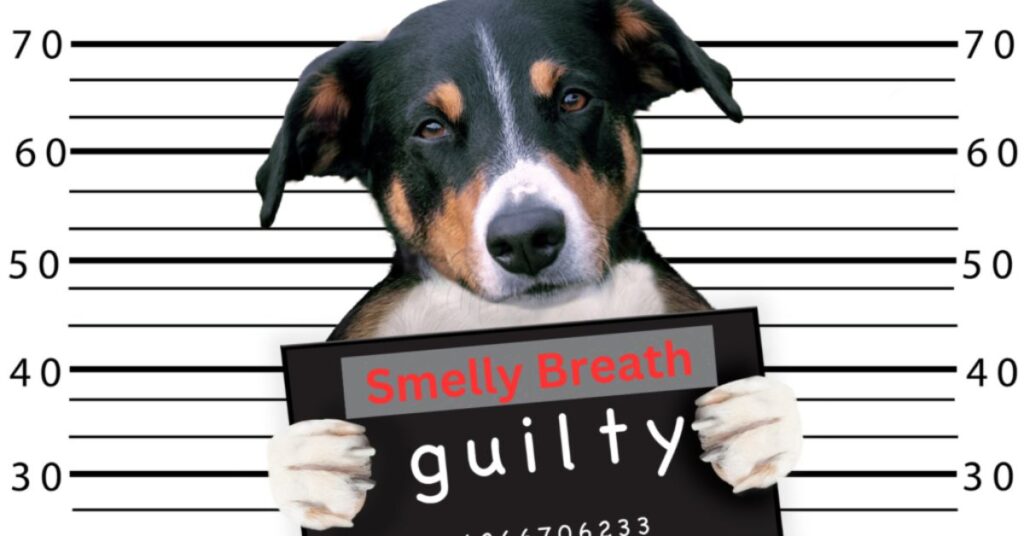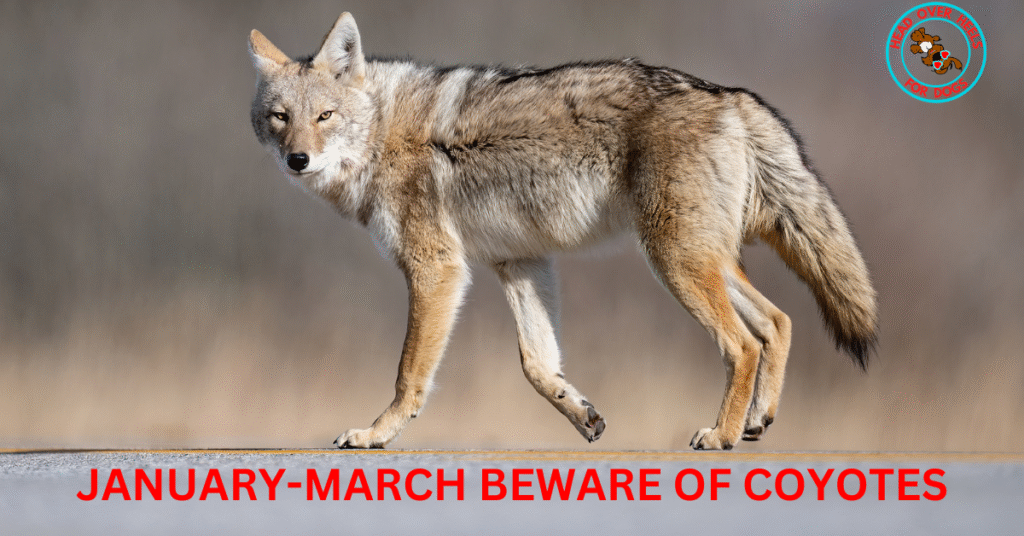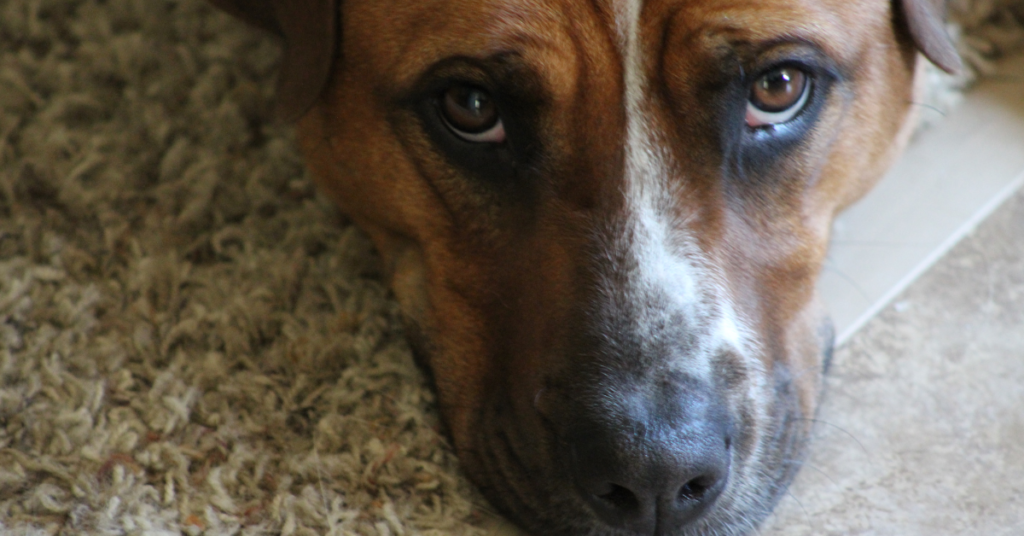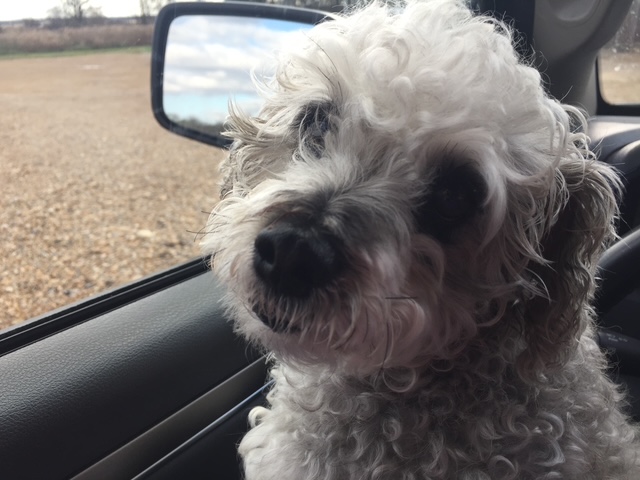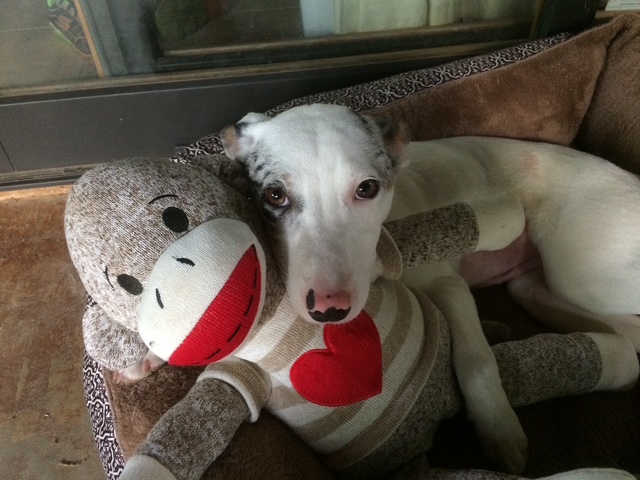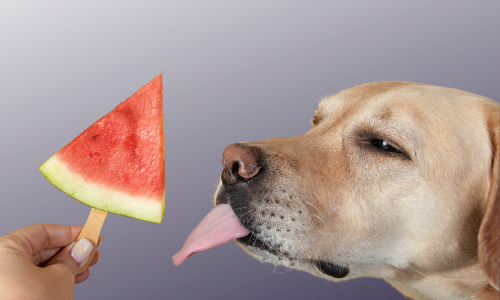Introduction:
Does your dog have smelly doggy breath?
We all love the sweet scent of puppy breath, but what happens when your furry friend’s exhalations take an unexpected turn for the worse?
Dogs’ breath can sometimes carry unusual odors, which may be indicative of underlying health issues.
In this blog post, we’ll delve into the different abnormal smells of a dog’s breath, explore their potential causes, and discuss what proactive steps you can take to ensure your canine companion’s oral health.
*Disclaimer: This Post May Contain Affiliate Links. This Means That I Receive A Small Commission At No Extra Cost To You Should You Click Through And Make A Purchase. Learn More On My Policy Page
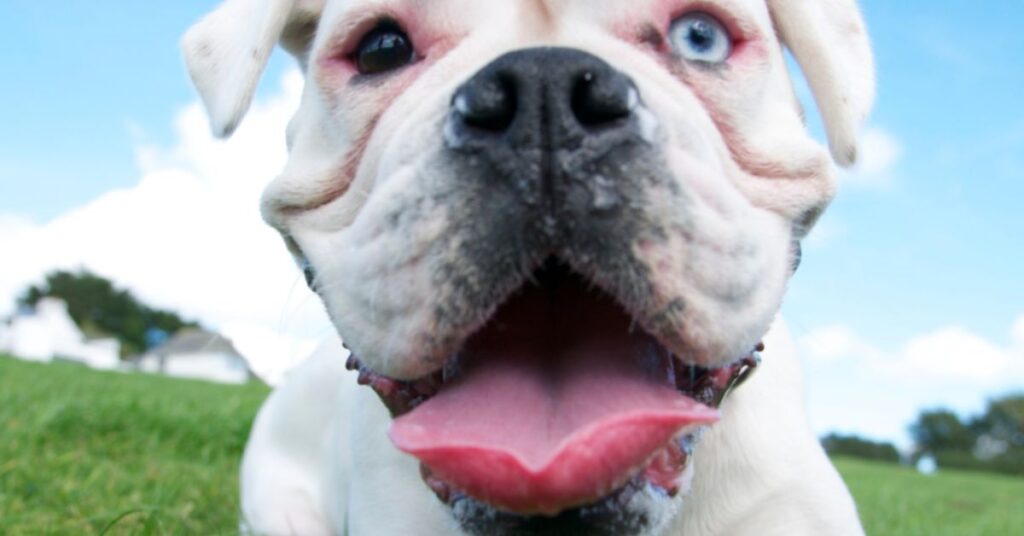
1. Sweet and Fruity Odor: Diabetes Alert
If your dog’s breath suddenly takes on a sweet, fruity aroma, it could be a sign of diabetes.
When diabetes is uncontrolled, it can lead to a condition known as ketoacidosis, causing the breath to smell distinctly sweet.
If you notice this unusual scent, it’s crucial to consult your veterinarian promptly for a thorough examination and proper diagnosis.
2. Fishy Smell: Anal Gland Issues
A fishy odor emanating from your dog’s mouth may be linked to issues with their anal glands.
Dogs have anal glands that can become impacted or infected, leading to discomfort and the emission of an unpleasant smell.
Dogs often lick this area when it feels uncomfortable, therefore causing their breath to smell fishy.
Consult your veterinarian to address this issue and discuss potential solutions, such as gland expression or dietary changes.
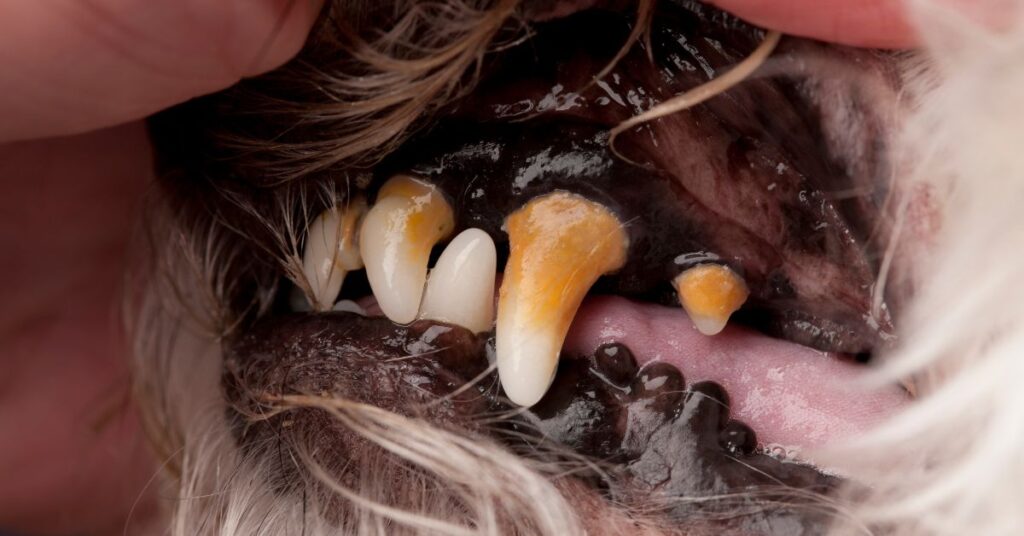
3. Foul, Rotting Odor: Dental Decay and Periodontal Disease
Persistent bad breath with a foul, rotting smell is often associated with dental issues, such as decay and periodontal disease.
Poor oral hygiene can lead to the buildup of plaque and bacteria, resulting in unpleasant odors.
Regular dental care, including brushing your dog’s teeth and providing dental chews, can help prevent these problems.
If the bad breath persists, a visit to the vet for a professional dental cleaning may be necessary.
4. Metallic Smell: Kidney Issues
A metallic or ammonia-like odor could indicate potential kidney problems.
Kidney disease can affect a dog’s breath as waste products build up in the body.
This is a very distinctive smell. If you detect a metallic scent, consult your veterinarian for a comprehensive examination and diagnostic tests to assess your dog’s kidney function.
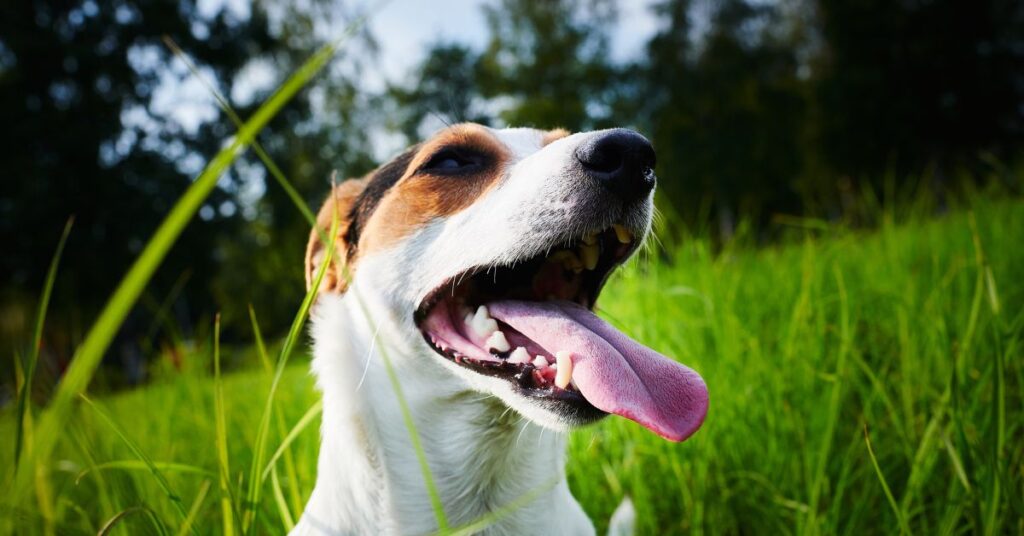
5. Sour, Musty Breath: Gastrointestinal Issues
Dogs with digestive issues or stomach problems may exhibit a sour or musty breath odor.
This could be a sign of gastrointestinal problems, such as gastric reflux or other digestive disorders.
Consult your vet to identify and address the root cause of these issues, and consider adjusting your dog’s diet if necessary.
6. Musty or Moldy Smell: Dental Issues or Respiratory Problems
If your dog’s breath carries a musty or moldy scent, it could be associated with dental issues or respiratory problems.
Mold and mildew can thrive in damp environments, and if your dog has dental infections or respiratory concerns, these odors may be present.
Schedule a vet appointment promptly to identify and address the underlying cause.
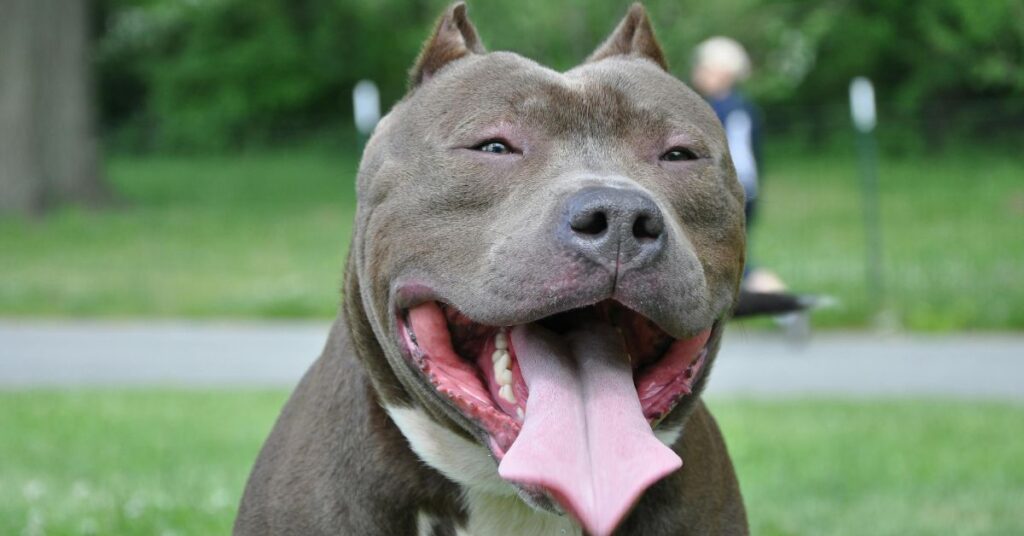
7. Liver Issues: Ammonia-Like Odor
Liver issues can lead to an ammonia-like odor in your dog’s breath, signaling potential liver dysfunction.
Prompt veterinary consultation is crucial for a thorough examination, including blood tests, to accurately diagnose the condition.
With an accurate diagnosis, your veterinarian can recommend appropriate treatment, dietary adjustments, and medications to manage and improve liver function.
8. Foreign Object: Something Stuck in Your Dog’s Mouth
If your dog has something stuck in their mouth, it may cause an unpleasant smell and pose a risk of injury or infection.
Inspect their mouth carefully, paying attention to the gums, tongue, and throat. If you can’t identify or safely remove the object, seek immediate veterinary assistance.
Swift intervention is vital to prevent complications, and your veterinarian can utilize specialized tools to safely extract any lodged items.
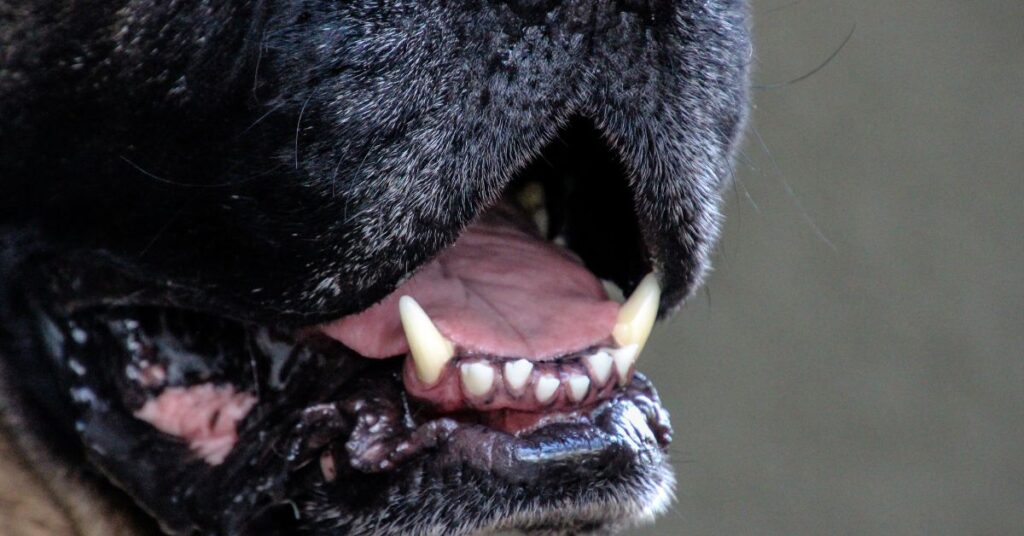
9. Ate Something Toxic: Chemical Odors
Ingesting toxic substances can result in chemical odors emanating from your dog’s breath, indicative of a potential poisoning emergency.
If you suspect toxicity, don’t hesitate – contact your vet or a poison control hotline immediately for guidance.
If you cannot reach a your veterinarian, you can call the ASPCA 24/7 Poison Control Hotline at 888-426-4435 or the Pet Poison Helpline at 855-764-7661.
Be prepared to provide information about the ingested substance and follow your veterinarian’s advice for immediate intervention, which may include induced vomiting or administering specific treatments to counteract the toxic effects.
10. Cancer Tumor: Unexplained Odor Changes
Unexplained changes in breath odor, especially if persistent, might be associated with a cancerous tumor.
Consult your vet for a thorough examination and diagnostic testing, which may include imaging such as X-rays or ultrasounds.
Early detection is crucial for devising an effective treatment plan, whether it involves surgery, chemotherapy, or other targeted therapies.
11. Dietary Deficiencies: Unpleasant Odors
Dietary deficiencies can contribute to unpleasant breath odors, highlighting the importance of a well-balanced diet.
Ensure your dog receives not only appropriate quantities but also a variety of nutrients through high-quality dog food.
Discuss any concerns about your dog’s diet with your veterinarian, who can recommend suitable supplements or dietary adjustments to address deficiencies and promote optimal health, eliminating the unpleasant odors associated with nutritional imbalances.
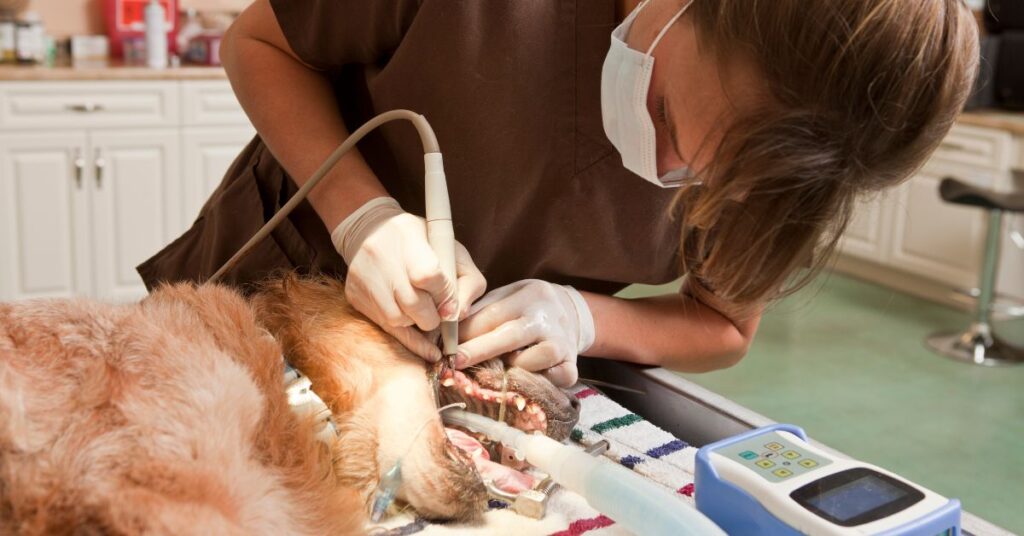
Banishing Dog Breath – Simple Solutions:
Maintaining good oral hygiene is key to banishing bad breath. Consider the following tips:
- Regular Brushing: Brush your dog’s teeth regularly using a dog-friendly toothbrush and toothpaste.
- Dental Chews and Toys: Provide dental chews and toys designed to reduce plaque and tartar buildup.
- Professional Dental Cleanings: Schedule regular professional cleanings with your veterinarian to address any existing dental issues.
- Balanced Diet: Feed your dog a balanced and nutritious diet to support overall health, including dental health.
- Fresh Water: Ensure your dog has access to clean, fresh water at all times to promote hydration and prevent dry mouth.
- Regular Vet Check-ups: Schedule regular veterinary check-ups to catch and address potential issues early on.
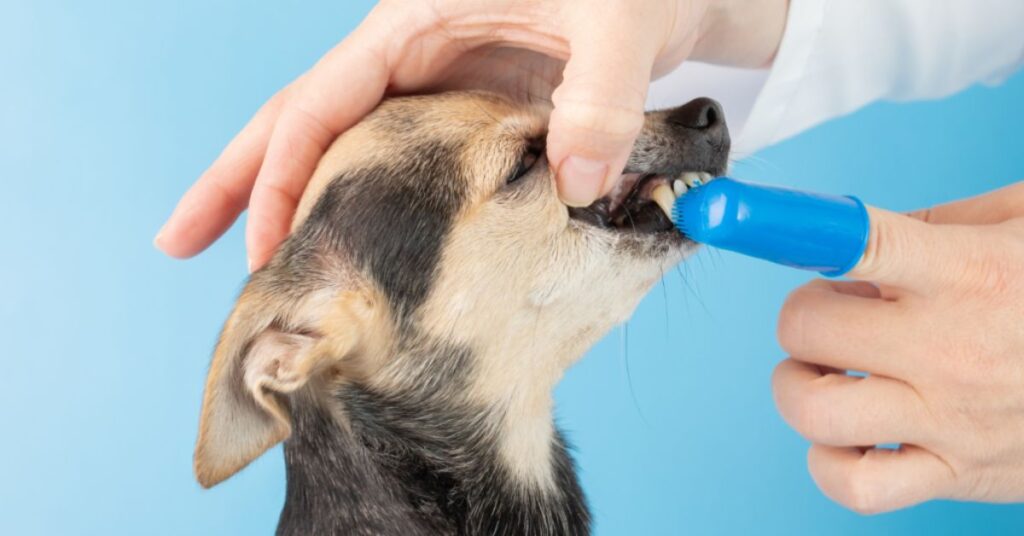
Conclusion:
Understanding the different abnormal smells of your dog’s breath is a crucial aspect of responsible pet ownership.
Regular veterinary check-ups, a balanced diet, and consistent oral care are key to maintaining your canine companion’s overall health.
If you notice any unusual odors, don’t hesitate to consult with your veterinarian promptly to ensure that your furry friend leads a happy, healthy life filled with fresh, clean breath and endless tail wags.
Check out our Fido Files Health & Wellness Page for more information on dog illnesses and their symptoms.

